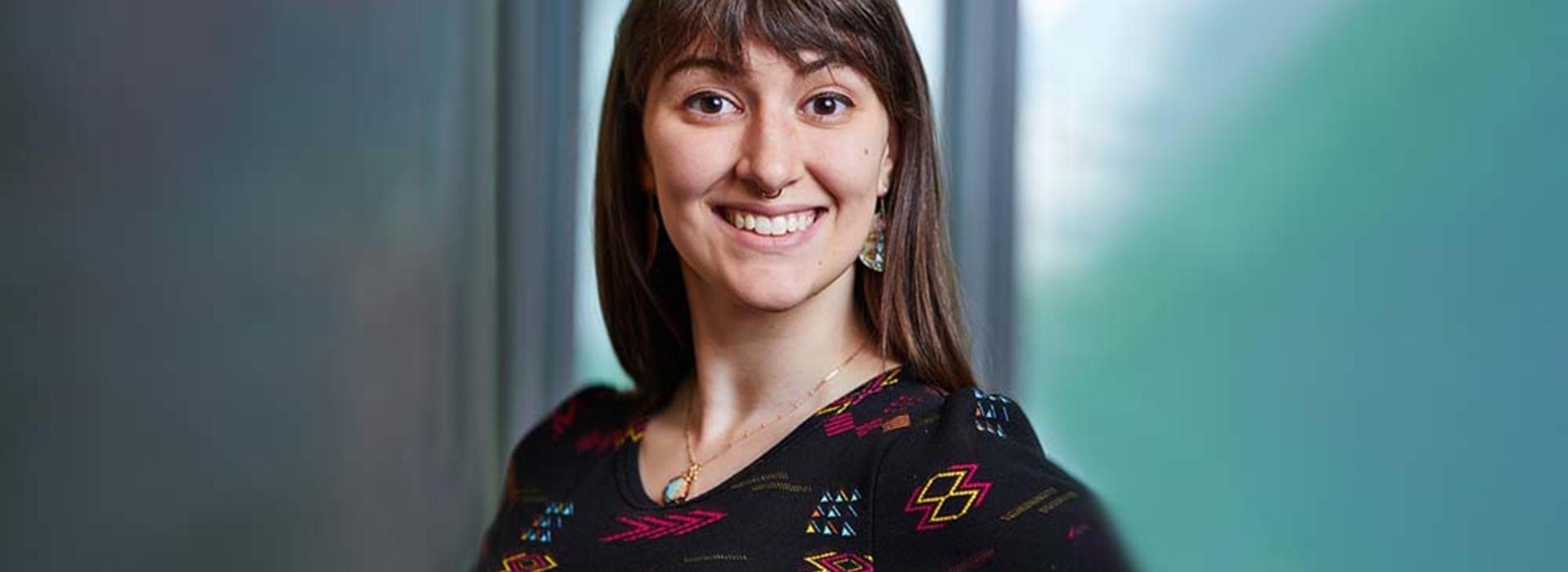
Welcoming the Class of 2025: Madison Esposito
For Madison Esposito, healing is instinctual. A member of the Berry Creek Rancheria of Maidu Indians of California, Esposito descends from a long line of traditional medicine keepers. After seeing the health of her community in decline, Esposito decided to pick up where her great-grandmother, the tribe’s last medicine keeper, left off.
“The importance of community health has been a part of my life forever, and I knew that I wanted to practice something that would improve the health of my community,” Esposito said. “I saw the health of my community failing for so many reasons. I decided that I wanted to go into western medical practice because of the possibilities that it would introduce to my community by bringing those two practices together.”
Throughout her education, Esposito was confident medical school was her path. During her graduate studies at Harvard T.H. Chan School of Public Health, a mentor introduced her to his alma mater, the University of Minnesota Medical School. Though not initially on her radar, Esposito was attracted to the strong Native health curriculum at the Medical School’s Duluth Campus, which quickly became her top choice.
“I was so excited when I got the call that I had been accepted. There's so many Native students here, which is different from other medical universities. It's really refreshing,” Esposito said. “There’s just no other university like this with this specific curriculum.”
Caring for her community back in California is still what drives Esposito. During the pandemic, she and her cousin, Taylor Pennewell, started a nonprofit to support distance-learning and public health within her tribe.
“We decided to start a nonprofit called, Redbud Resource Group,” Esposito said. “Redbud is a very culturally important plant to us. It's what we use to make our baskets, which are central to our culture. We decided we were going to make distance-learning materials for students in our tribe, so they could see themselves in the curriculum that they were receiving during the pandemic.”
As well as providing healthcare to her tribe, Esposito plans to maintain the growth of her nonprofit after completing medical school.
“I want to further what we’re doing with the nonprofit, providing materials and professional development to healthcare professionals, to make sure that they are making equitable, empowering and uplifting spaces for their Native patients,” Esposito said.
Esposito looks forward to starting a mission-focused education at the Medical School, Duluth Campus, which will support her work and the Tyme Maidu Nation.
“Sometimes, your passions just drive you places,” Esposito said. “Integrated medicine has so much potential to improve the health of Native communities, and I really want to do that for my tribe. I’ll be our first doctor, so it's really exciting.”